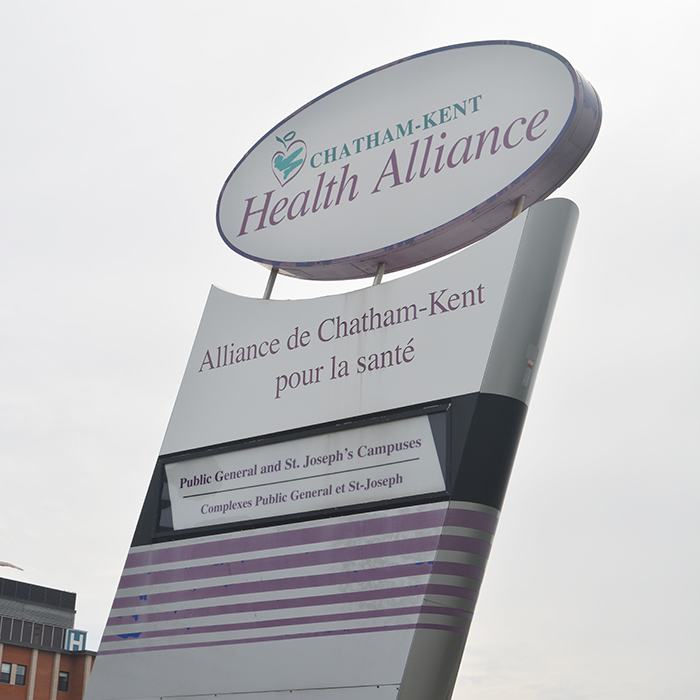
The Chatham-Kent Health Alliance recently came through on its promise to purchase $1 million in important updated equipment.
According to alliance officials, acquiring new and upgraded equipment and technology is imperative to maintaining the delivery of safe, high-quality care for local patients and their families. The recent announcement of the organization’s 2017/18 Recovery Plan, designed to help achieve a balanced budget for CKHA, has enabled the organization to address its high priority capital equipment needs.
“I am pleased that through our collective efforts, we have been afforded the opportunity to invest in much-needed capital equipment that will enhance patient care,” said Lori Marshall, President and CEO, in a media release. “New and upgraded equipment is essential to maintaining the high quality care our staff, physicians and volunteers deliver on a daily basis.”
The 2017/18 Recovery Plan was developed to ensure CKHA can continue to deliver high-quality health care while investing in new and expanded programs, support equipment renewal, and facility repair/replacement. All while achieving financial performance that is equivalent to peer hospitals. This plan included a budget of $1M capital dollars for the purchase of new equipment this year.
The equipment was selected based on priorities identified by the medical and hospital staff, officials say. A small portion of these funds will be retained for unexpected repairs or replacements and maintaining a safe environment. These dedicated funds, along with much needed donations through the community support of the Foundation of CKHA will continue to support the hospital’s staff in the delivery of quality healthcare to the community.
CKHA’s leadership team also continues to work with the Ministry of Health and Long-Term Care on a long-term capital planning process for more extensive upgrades and renovations at both the Chatham and Sydenham Campuses.
“I am thrilled we have been given the go-ahead to immediately address the most urgent equipment needs for our programs and services across both sites,” said Jerome Quenneville, Vice President and Chief Financial Officer. “This is a significant step to ensuring the sustainable delivery of high quality care for the long-term and enables us to better focus on addressing the larger fragilities associated with our current buildings.”
New investments in capital equipment include a new laryngoscope in the emergency department – a tool used for physicians when used for intubation – point-of-care ultrasound and resources to support advanced training for ER physicians at both campuses, transport neonatal/infant isolette – for critical patient transfers to tertiary centres (Women and Children’s Program), vital signs monitors, trauma stretchers, transvenous pacemakers, a surgical table, microscope, and patient showers and bathroom repair.
The new purchases received the thumbs up from staff.
“I am pleased that our Emergency physicians will have access to a new video-laryngoscope – a special tool used during intubation. This essential piece of equipment is most often used to maintain an open airway in critically ill patients and enables the care team to administer life-saving measures. The purchase of this high priority equipment will enable our Emergency team to maintain the safe delivery of high quality care,” Dr. Anthony Dixon, Chief and Program Medical Director of Emergency Medicine, said in a release.
“Acquiring a new transport neonatal/infant isolette will assure new parents and families that their critically ill newborns remain safe on their patient transfer journey from CKHA to tertiary care centres. This special life-saving equipment will certainly make a difference for our tiniest patients and their families at a precarious time in their lives,” Dr. Wendy Edwards, Chief of Paediatrics and Co-Medical Director of the Women & Children’s Program, said in a release.
“I’m appreciative we have received the opportunity to address urgently needed equipment within our Operating Room. The addition of a new cutting-edge surgical table ensures we can continue the delivery of safe, high quality care efficiently to our patients and their families,” said Dr. Elizabeth Haddad, Chief of Surgery and Co-Medical Director of the Surgical Program, in a media release.
This fall, the CKHA will begin a five-year capital planning process to help plan for the long-term revitalization of both the Chatham and Sydenham campuses. CKHA continues to work closely with its Foundation to raise additional funds for capital and infrastructure renewal projects, officials said.






